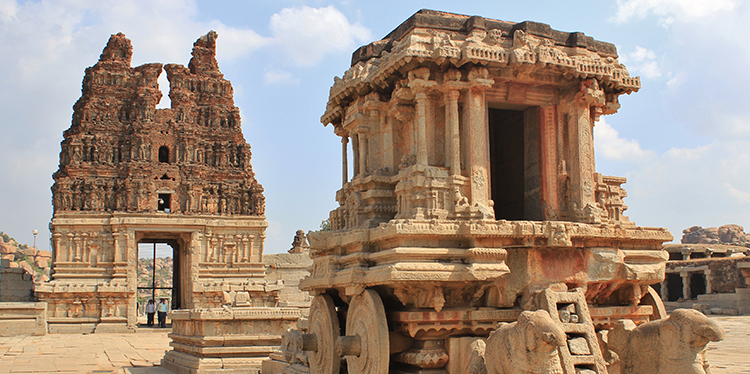Article 28-1 of the Indian constitution says that “No religious instruction shall be provided in any educational institution wholly maintained out of State funds”. In other words, any State funded institution whether it is a Central University (like Jawaharlal Nehru University, Jamia Millia Islamia or the Banaras Hindu University) or a State University like University of Mumbai or Madras may not offer any religious education whatsoever. In the interpretation of Secularism, as per the writers of the Indian constitution, religion may not be studied or taught in any State funded educational institution.
In contrast let us take the case of the University of California, Santa Barbara which has the largest department of religious studies in California. It offers Masters and Ph.D. level graduate programs in fields such as Buddhist Studies, Christian Studies, East Asian Religions, Islamic Studies, Mediterranean religions, Native American Religions, Philosophy and Religion, Religion and Culture, Religions in North America, South Asian Religions and so on. It is important to note that the University of California, Santa Barbara, is a State funded and administered institution. It is not the only one. Many hundreds of prestigious institutions in the US, which are State funded, do offer comprehensive programs in the field of “Religious Studies”, through their Departments of Religion. The American Academy of Religion has over 11,000 scholars of religion not counting the 9000 scholars who study in Schools of Theology or Divinity. In England, Oxford has a Faculty of Theology and Religion and so does the London School of Oriental and African Studies. In the Western world, the study of religion is considered a legitimate part of educational activity – even though the State itself is secular. Clearly, the “secular” State in the west is not hostile to the study of religion in its Universities, in the way the “secular” Indian State is. But this is not all.
The Jamia Millia Islamia University has a Department of Islamic Studies, which was created in 1920, right at the inception of the University. This Department offers M.A. and Ph.D. programs in History of Muslim Civilization, Islamic Religious Sciences: The Quran, Hadith, Fiqh, Tasawwuf, Muslim Sects and Kalaam, Contribution by non-Muslims to Islamic Studies, Muslim Philosophy, Islam in India, Muslim Reform Movements and Thinkers, Contemporary Muslim World, Major World Religions, Medieval Muslim Contribution to Science, Technology and Fine Arts and Proficiency in Arabic. And the Jamia Millia Islamia is a fully State funded Central Institution. How is this possible?
Well, the problems are in the following Articles in the Constitution of India. Article 28-2 of the Constitution says that “Nothing in Clause (1) [i.e. Clause 28-1] shall apply to an educational institution which is administered by the State but has been established under any endowment or trust which requires that religious instruction be imparted in such institution”. And Article 30-1 of the Constitution of India says that “All minorities, whether based on religion or language, shall have the right to establish and administer educational institutions of their choice”. Article 30-2 says that “The State shall not, in granting aid to educational institutions, discriminate against any educational institution on the grounds that it is under the management of a minority, whether based on religion or language”. These two articles 30-1 and 30-2 is where there is a room for interpretation. Taken together, they provide minorities the right to establish institutions of their choice, and get financial aid from the State. These provisions have been used not only by Jamia Millia Islamia but many dozens of Islamic educational institutions in India, in both being state funded as well as offering religious education in Islam.
The constitution however does not say that “The Majority may not establish and administer educational institutions of their choice”. Nor does it say, that the “State shall discriminate against the majority in granting aid”. Perhaps the writers of the Constitution anticipated that the right of the majority community was not a matter of dispute – and that it was only the rights of the minorities that needed explicit emphasis. Perhaps the majority community i.e. the Hindu communities of India, have not experimented sufficiently with establishing and administering educational institutions of their choice (i.e. including religious education), and asking the Government to provide aid, within the charter of their own endowment or trust. Or perhaps they did, and the Government of the day interpreted the Constitution to mean that only the minorities could do so, and the majority community could not. There appears to be on the whole, room for a Hindu friendly Government to establish educational institutions through endowments and trusts that explicitly require religious education, and for such institutions to be fully State funded. This possibility needs to be fully explored, in the near future, in the window when we may have an Indian Government that is not as explicitly hostile to the majority community as in the past.



